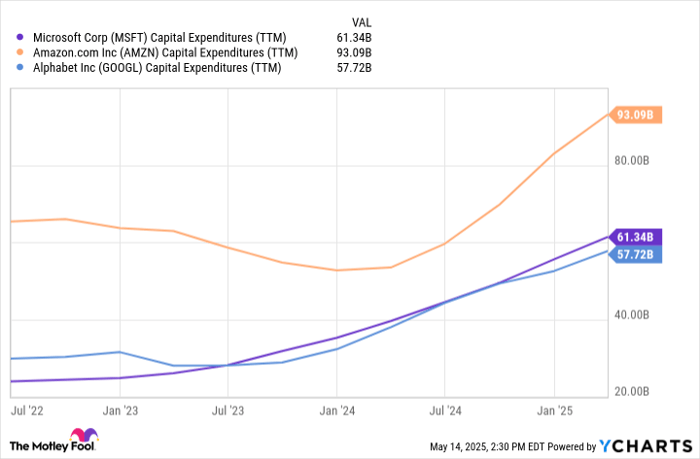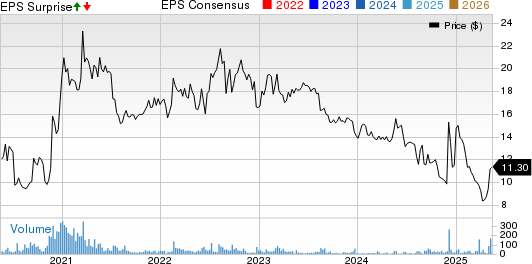Investing in Quantum Computing: Risks and Rewards of IonQ
Science fiction is becoming reality with the rise of self-driving cars, humanoid robots, and quantum computers. Researchers estimate that quantum computing could generate $850 billion in economic value by 2040. Investors are actively pursuing quantum computing stocks, with IonQ (NYSE: IONQ) witnessing a remarkable 300% increase in value over the past year, offering substantial returns for shareholders.
The question arises: Is now the ideal time to invest in IonQ? The answer is complex.
Understanding Quantum Computing’s Potential
Self-driving cars and humanoid robots are easy to appreciate, as they can perform tasks previously handled by humans, granting us more leisure time. But what is the attraction of quantum computers?
Simply put, quantum computers promise unparalleled speeds in advanced calculations. Traditional supercomputers—based on semiconductors—may require hours or days for complex mathematical problems, AI tasks, or simulations. In contrast, quantum computers leverage quantum mechanics to solve similar problems in mere seconds, potentially saving both time and money. This capability could revolutionize everything from personal devices to cloud computing.
While the prospects are appealing, the reality is that refining this technology is exceptionally challenging. IonQ is at the forefront, developing quantum computers intended for commercial use and providing resources to support other research initiatives. Moreover, the company has begun offering its quantum services via public cloud platforms, although the technology still faces numerous hurdles.
If IonQ can achieve supremacy in quantum computing and effectively commercialize its products, significant potential lies ahead. This optimism is reflected in its soaring valuation, currently standing at $8.6 billion.

Image source: Getty Images.
Financial Challenges Ahead
As an early-stage startup delving into a groundbreaking technology, IonQ faces substantial financial obstacles. Recently, the company reported just $7.6 million in revenue while incurring a loss of $75.7 million. The ongoing operating losses have escalated over the years and are expected to worsen as IonQ continues its research investment in quantum computing.
On a positive note, IonQ has $700 million in cash reserves from multiple capital raises. However, this funding has come at a cost: share dilution, with shares outstanding increasing by 29% over the past two years. At the current burn rate, IonQ’s runway to profitability is limited, and experts believe that commercialization of quantum computers may still be five years or more away. This uncertainty represents a significant risk for investors.

IONQ Shares Outstanding data by YCharts.
Reality Check on Quantum Computing Investments
While the allure of quantum computing stocks is palpable, these investments often do not yield returns. In recent decades, we have seen the rise and fall of numerous hyped technologies, including clean energy and electric vehicles. While some innovations have delivered outcomes for companies, many stocks have underperformed.
Building new technology in the public eye is fraught with high risks. IonQ and other quantum computing companies are facing massive financial losses along with minimal sales, which leads to inflated market caps. This combination often results in poor long-term stock performance. Despite IonQ’s impressive gains over the last year, it may be prudent for investors to approach IonQ with caution.
Should You Invest in IonQ Now?
Before considering an investment in IonQ, take the following into account:
The analyst team from Motley Fool has highlighted what they believe are the 10 best stocks for today’s investors, and IonQ is notably absent from that list. The stocks selected could present substantial opportunities for returns in the coming years.
For context, if you had invested $1,000 in Netflix on December 17, 2004, it would have grown to approximately $642,582! If you invested the same amount in Nvidia on April 15, 2005, it would be valued at about $829,879!
It’s crucial to note that Stock Advisor boasts an impressive average return of 975%, far surpassing the S&P 500’s 172%.
Brett Schafer has no position in any of the stocks mentioned. The Motley Fool has no position in any of the stocks mentioned. The Motley Fool has a disclosure policy.
The views and opinions expressed herein are those of the author and do not necessarily reflect those of Nasdaq, Inc.







